From Engineer to Entrepreneur: How I Built Two Businesses After Starting With Nothing
From $3,000 and student debt to owning two businesses, this is the journey of a young engineer who bet on himself — and built a new life across the ocean.
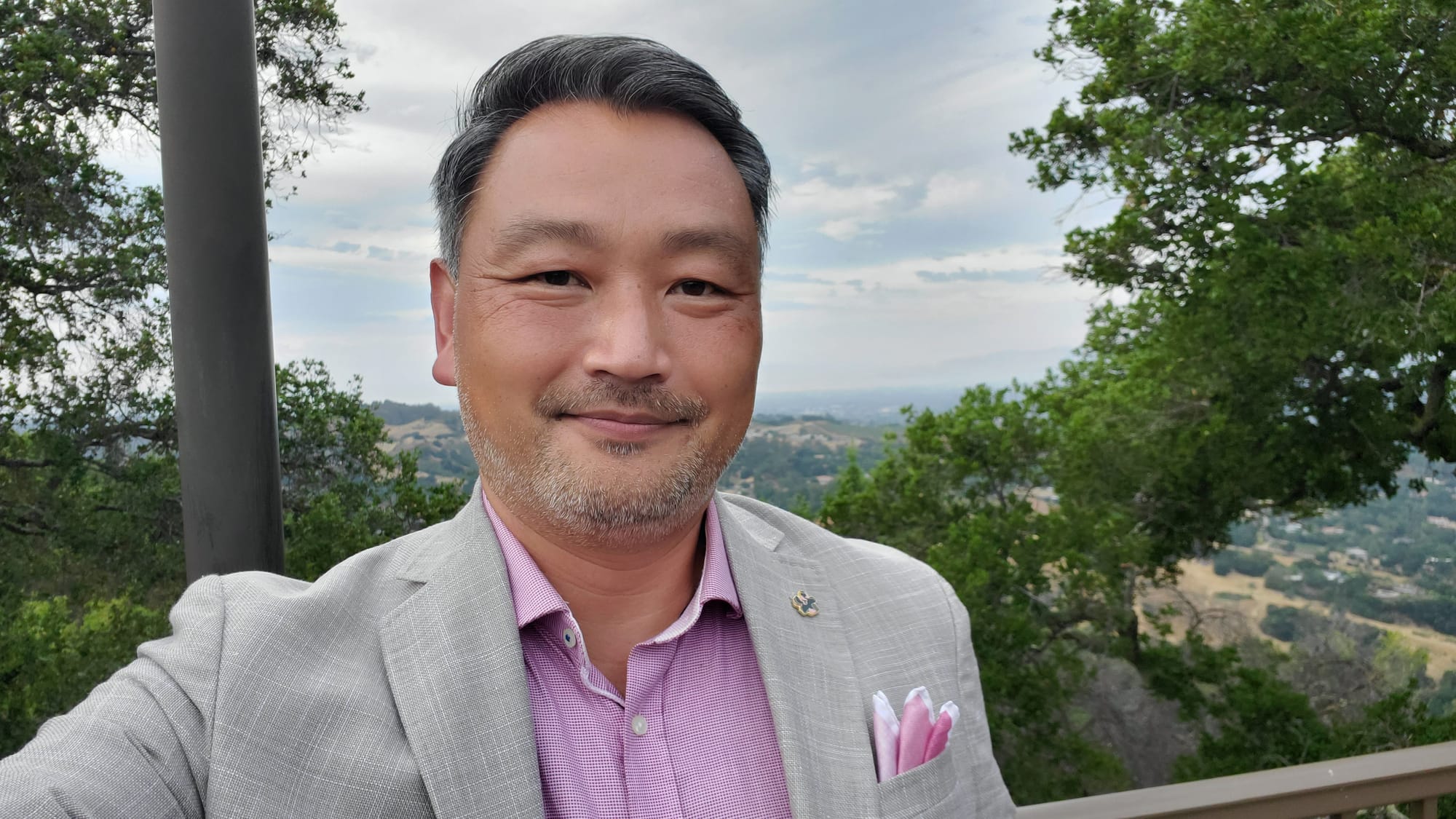
A net negative start
They say, “Don’t work for money. Make money work for you.” But when you start with nothing, it feels like you’re always working just to stay afloat.
At 24, I landed in the United States with $3,000, student debt, and no safety net. By the time I finished graduate school and found my first job, I had added credit card debt and an auto loan to the pile. While my friends were already climbing the corporate ladder, I was starting late — and starting with a negative net worth.
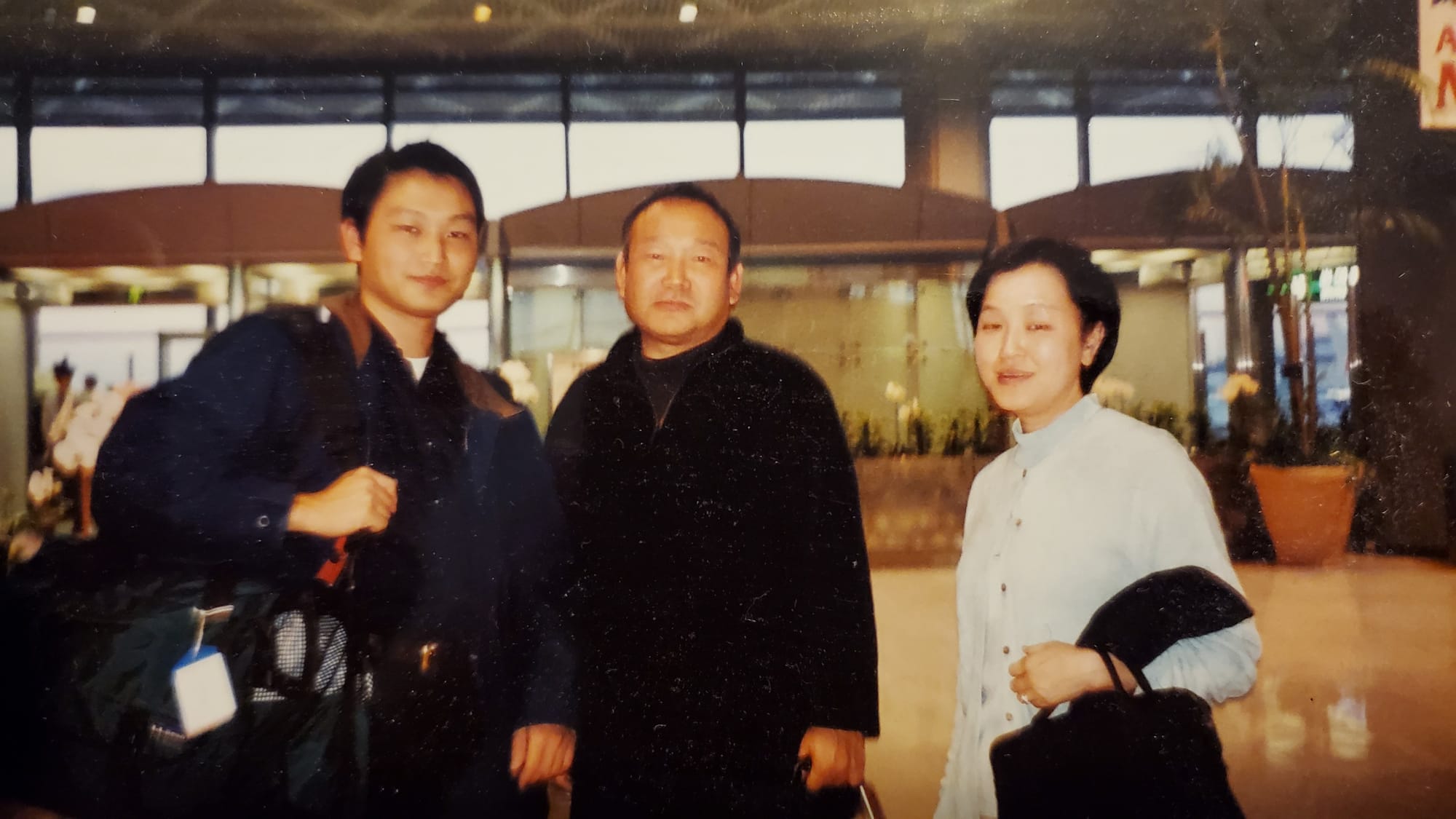
A journey of a thousand miles begins with a single step. I started as a junior software engineer in a big company. After 4 years, the fatigue from the corporate life and my curiosity led me to a Y Combinator startup, where I joined as a senior software engineer. Throughout my career as a software engineer and data scientist, I acquired practical skills in engineering and management. I also learned about product, customer success, sales, and marketing by working at an early-stage startup.
Meanwhile, I got financial discipline thanks to my frugal and wise wife. I cleared all my debt, and we built a healthy amount of savings for retirement for my age. Clearing my debts gave me more than financial breathing room — it gave me mental freedom to dream beyond survival.
I was ready for the next step. But I didn't want to climb a corporate ladder or join yet another startup. In 2015, my wife and I had our first child, and I realized I wanted to make the most of my time with the family. So, I took an unconventional approach for an engineer.
I started a one-person company, Anelen Co., LLC.
You may ask: Can software engineers build their own businesses? Absolutely. Many software engineers have the technical skills, problem-solving mindset, and resourcefulness needed to build successful businesses, whether it’s through consulting, product development, or SaaS platforms. You don’t need a business degree to start — you need curiosity, persistence, and the willingness to learn. I'll share my journey in this article.
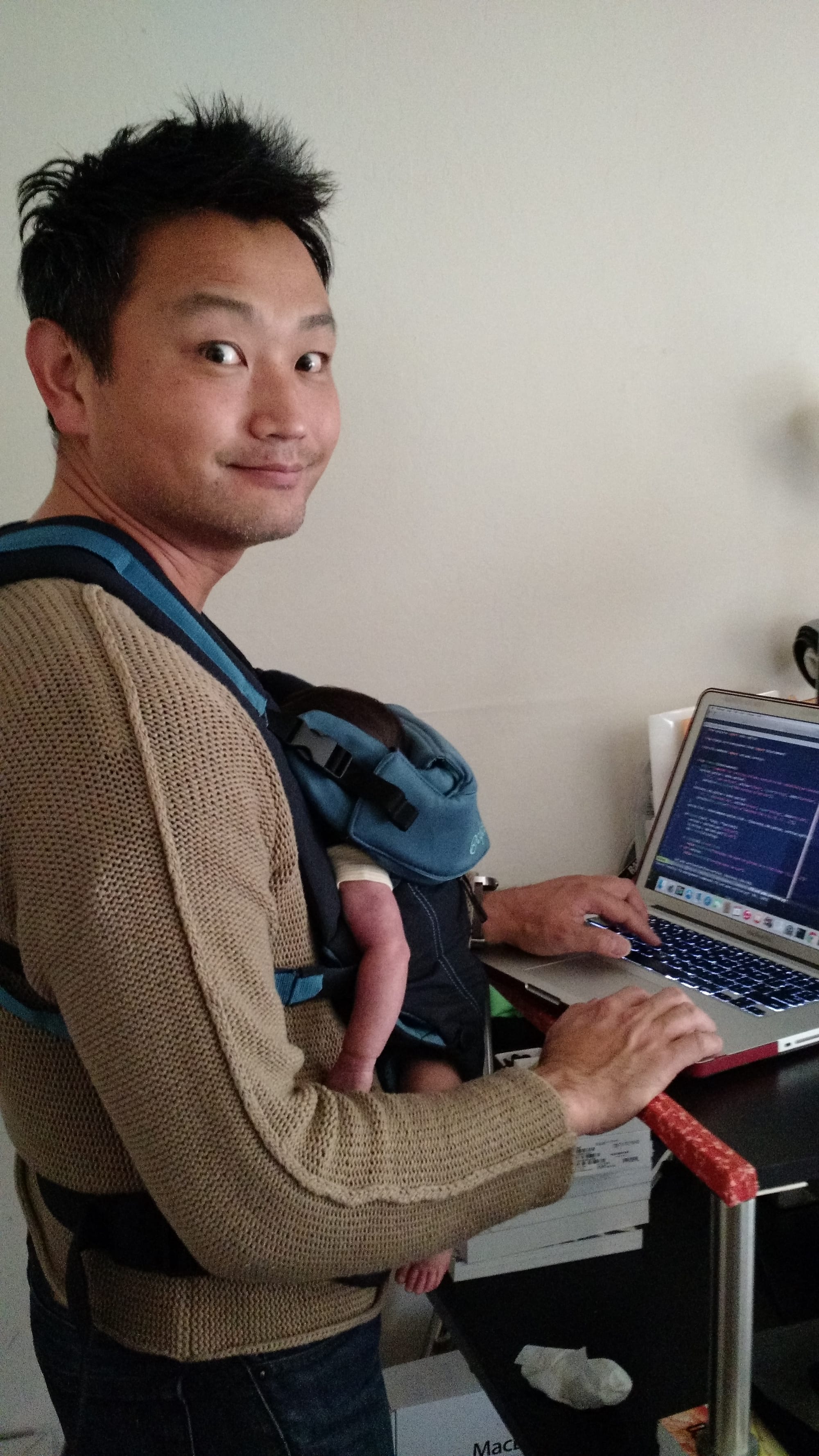
Making software and business work for me
Initially, I had to work hard as an independent consultant, exchanging my time for dollars. But, I had a vision to make software and business work for me. I found common problems among my clients and created a software system that automatically delivers what they wanted: data.
Instead of charging by the hour, I contracted for the maintenance of the data system and the delivery of customized data. The customers were paying for the value, not my time. And I could repeat and scale the delivery of the value to other customers without eroding my time.
The benefit of starting a one-person consulting business went beyond the time flexibility: I don't have employees or investors. The only meetings I have are with my clients, and they don't happen every day. I don't stress about managing people. Plus, everything I earn is for myself to keep after tax.
As a business owner, I pay much less tax on my earnings compared to full-time employees who earn the same amount as a salary. My salary is intentionally lower than theirs to reduce the income tax. A big part of the profit goes to the profit-sharing plan of the 401(k) program that I set up just for myself. The rest is paid as a shareholder distribution, which is taxed as a long-term capital gain at a much lower rate than income tax.
I wish I could say this made me filthy rich. No, it didn't. I'm not a genius entrepreneur with a killer instinct. But that is the point. I knew nothing but software engineering. And I'm not the best engineer in Silicon Valley. But I made something that I fully own and am proud of. I earn as much as Silicon Valley engineers, except that I don't have to work all year round, 9 to 5, thanks to the data automation business, which is growing every year.
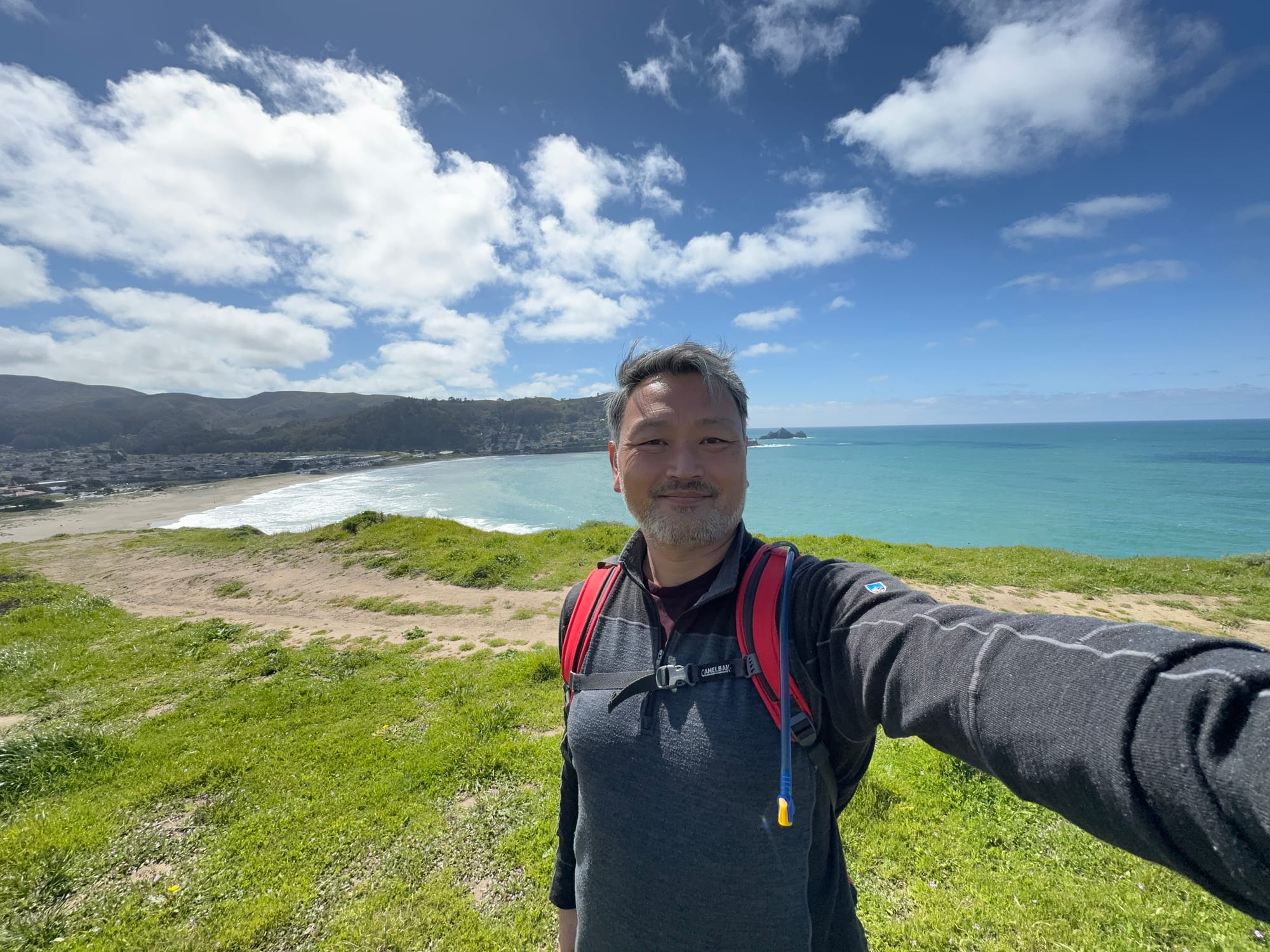
How I used my freedom
What would you do when you have less stress and more time for yourself?
Many people spend on luxury to feel they deserve it. And that's how they spend their time, too. That's not me. As our wealth grew, I had less hesitation in paying for the quality or taking epic family vacations whenever we wanted. But the source of everyday happiness was walking kids to school, having lunch dates with my wife, and pursuing my creative endeavors.
I was always a self-taught person with a creative thirst: I trained myself and ran four marathons, I watched YouTube and learned how to smoke brisket like a real American dad, and I self-taught how to pour latte art. As a software engineer, I always want to build something original and helpful for myself and others. I started open-source software projects, and some of them are used by engineers from all over the world, including the United States, Germany, and Nepal. I was contacted by engineers from large companies, including Zoom, regarding the free software libraries I created.
My wife often tells me that I'm restless with the projects. But it delights me to create something useful for myself that also helps others.
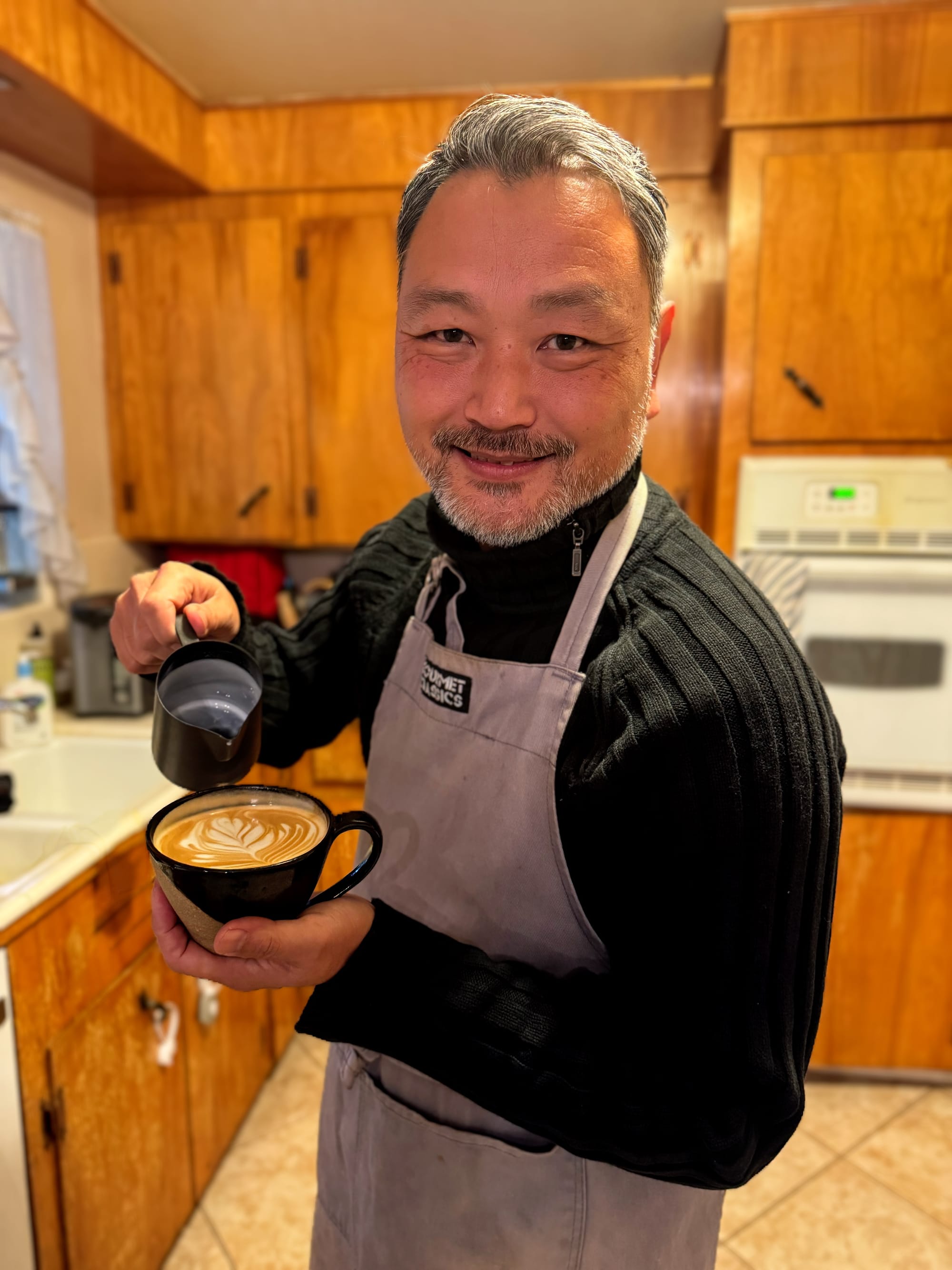
Hardship opens a new opportunity
No business sails forever without setbacks. At the beginning of 2020, the world shut down due to the COVID-19 pandemic.
One of my consulting clients was Panasonic, but they soon decided to bring people from Silicon Valley back to Japan and cancel our project. My other client was a startup focused on the hospitality business. They, too, had to scale down, and I lost them as a client.
I used to network almost only in person. It was a significant advantage to live in the San Francisco Bay Area to meet people. During the pandemic, I could no longer meet potential customers that way.
It was a scary time.
But I soon realized that I had my advantage. I had been working remotely for years already, as the rest of the world started to learn how to do business online. I recall my neighbor, who worked for Google, was very stressed about the back-to-back Zoom meetings. I had my way of communication through documentation and logging, instead of endless meetings.
My habit of writing things down also helped expand my digital network. I started posting on LinkedIn often. I wrote everything that came to mind, from engineering tips to lessons learned from the projects.
I knew many of my existing clients checked LinkedIn weekly, if not daily, so this was my way of showing up in front of them and saying hello while we couldn't catch up in person.
I'm not a social media influencer with a lot of followers. But I gradually made new connections on the platform. One day, a data science manager at a startup messaged me on LinkedIn. He was looking for a consultant who could help them build a real-time data processing system. LinkedIn's algorithm recommended my profile, and he decided to reach out to me. A couple of online meetings later, I had a new client and project.
We had no prior relationships or mutual connections. But the platform, like LinkedIn, made it possible to build relationships.
Then came an unexpected turn...
The new project was a success, and it made me realize how powerful it is to meet people digitally. I started to invest more time in showing up on LinkedIn. This continued after the pandemic was over.
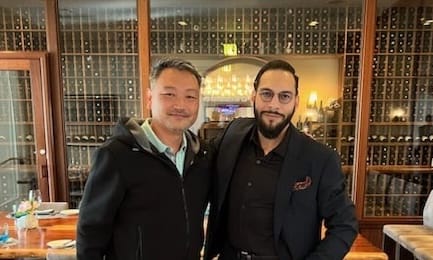
In September 2022, I drove 45 minutes from home to the Ritz-Carlton Hotel in Halfmoon Bay. The vastness of the Pacific Ocean, the sound, and smell of the tide always energize me whenever I visit the coast. My friend Omar Khateeb was waiting for me at the front. He was wearing a black suit and shirt. His signature beard was nicely trimmed. Omar is a highly respected podcaster and marketer in the medical device industry, and he was staying in the upscale hotel to speak at a conference.
We caught up over a coffee in The Conservatory, which boasts a magnificent view of the Pacific. Omar had over 20,000 LinkedIn followers (now over 40K in 2025) and was also betting on the platform to grow his business. We always wanted to work on something together, and this seemed like a great opportunity: What if I built a LinkedIn content management tool and he sold it?
To make a long story short, I built OmniCreator.club, a powerful SaaS platform to help you create and scale content on LinkedIn with the support of an exclusive thought leader community. Members have access to the best tools and peers to grow their influence. Omar took the lead on sales and marketing.
The benefit of 100% ownership
We incorporated as Two Sea Lions, Inc. This is my 2nd business to own. Thanks to my time flexibility and love of creation, OmniCreator became a polished product, and the operation became financially self-sustaining after refining the product and marketing. We did this without taking external investments. Together, we own 100% of this new business.
The benefit of full ownership goes beyond money. It's 100% on us to decide how to run the company. In our weekly Zoom meeting, Omar and I first talk about our lives as fathers and business owners – Omar started his business just before he and his wife had their first child, and my success as a business owner was part of his inspiration. We are only two people (Omar uses his virtual assistants), and our roles are clearly separated: I build and maintain the product while he sells. We strengthen our bond by talking about our lives, and we trust each other's decisions and effort.
Our work is a stark contrast to some of the toxic workplaces I witnessed firsthand as a Fortune 500 employee and startup consultant.
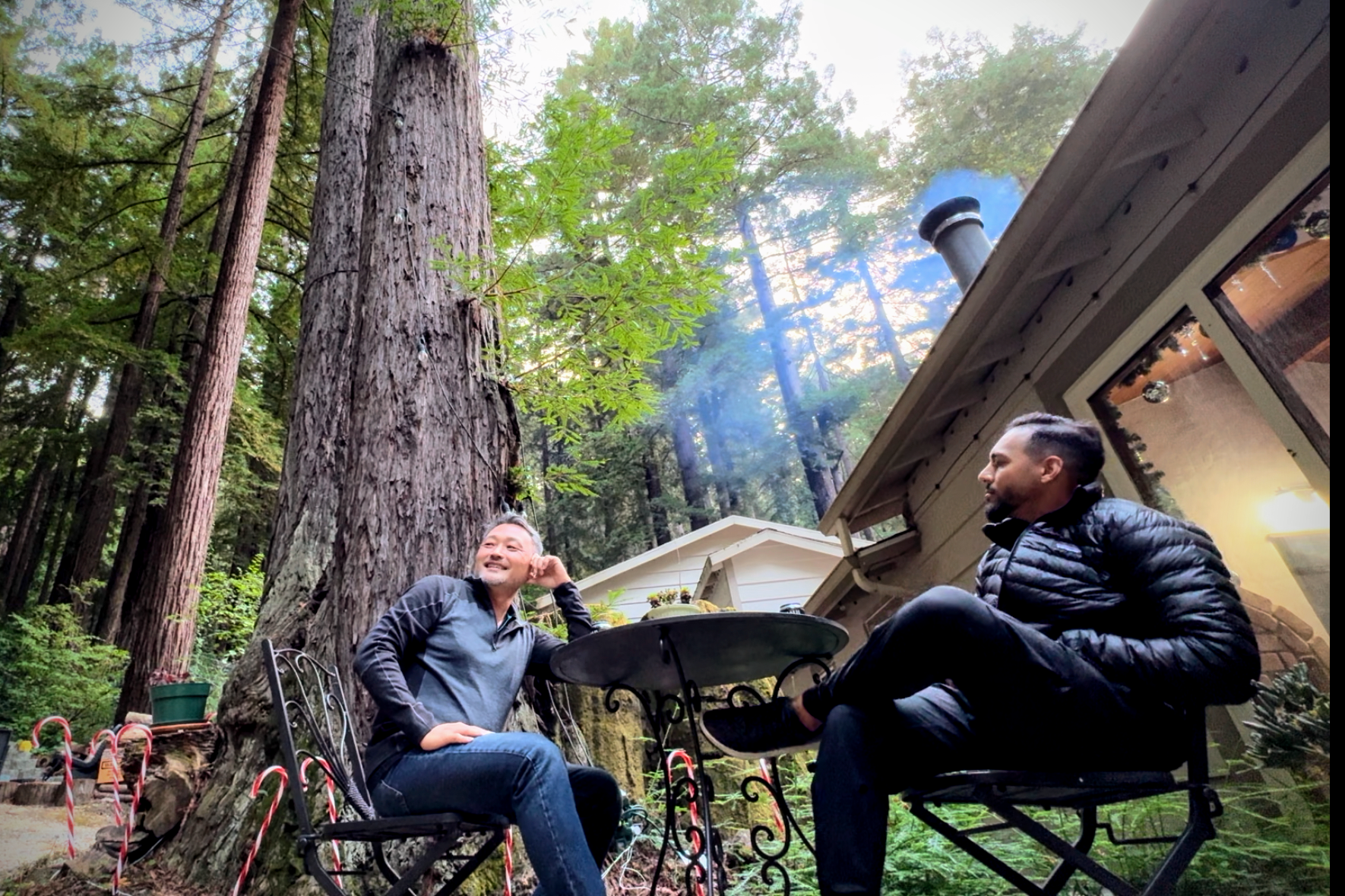
When we have a surplus, we could use the money to have a company retreat in a beautiful environment. We hiked, cooked, dined together, and stayed late at night to talk about life and the future of our product. Back when daily meetings and office politics drained me, I never imagined hiking a coastal trail in the middle of a workday with my business partner and friend.
I enjoy having full ownership of a company for the second time, but it turned out to be even better when it's shared with a great friend! (Unlike some conventional wisdom telling you not to start a business with a friend.)
The beautiful journey of "There Goes Nothing."
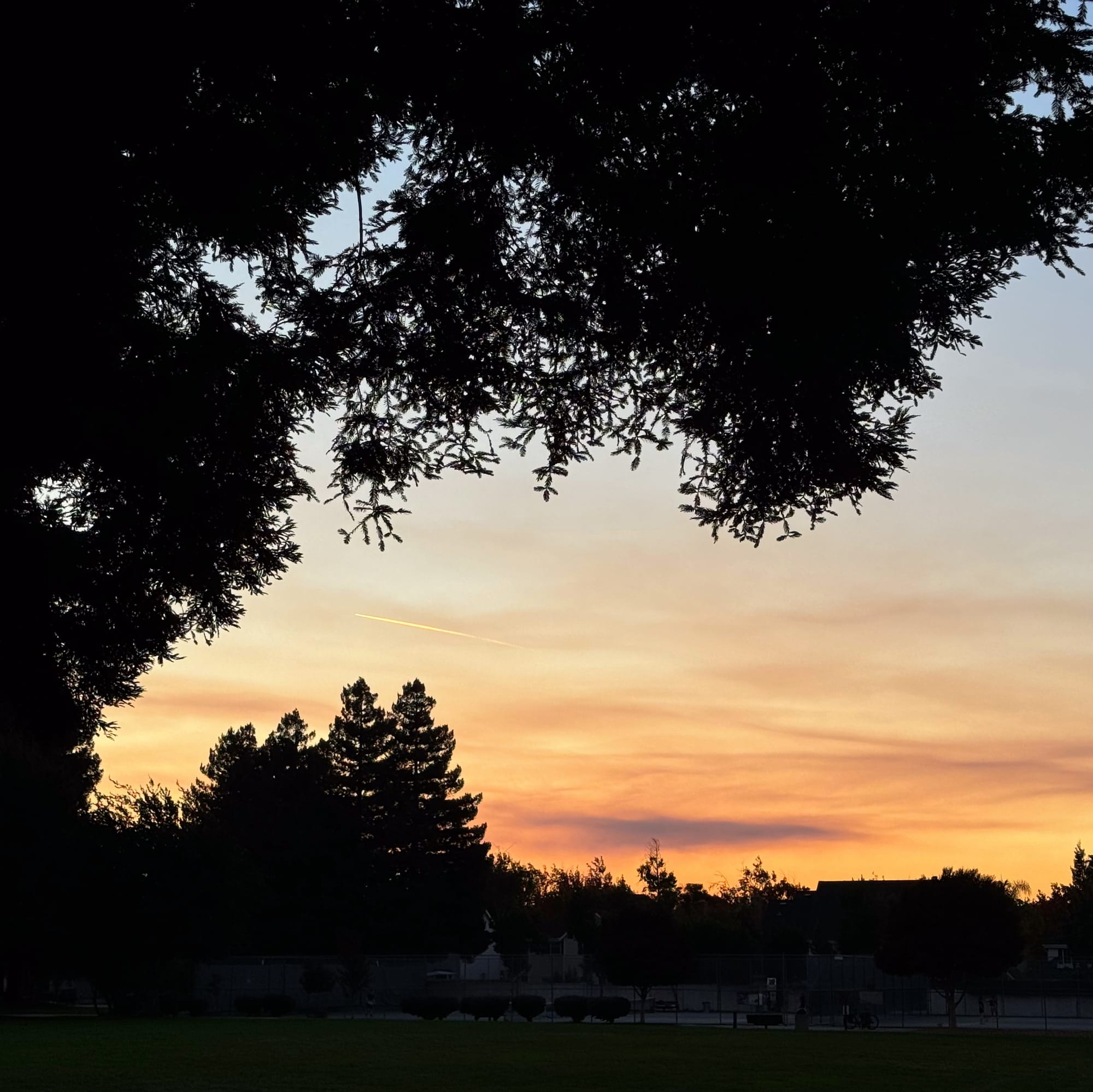
On October 25, 2024, I cried like a little kid.
I was driving to pick up the kids when I saw a perfect pastel sky, and the car unexpectedly played "L-O-V-E" by Nat King Cole.
The day marked 24 years since I migrated to the USA as a 24-year-old single young man. I came to the new country with nothing or nobody...but a student loan.
"How could I have imagined the day I lived half my life in this new world and called it home? – Home, where I have my beautiful wife and two kids.", I asked myself.
My journey was a series of unexpected turns, and I sure cried many times during the struggles. Now that we were financially secure and my time was flexible, I could spend time with my family every day.
It took 20 years, earning a PhD, building a marriage, surviving corporate life, thriving in a startup, founding two businesses, and raising two children...But I made it so far.
I replayed the moment my plane from Japan first touched down in the USA on October 25, 2000. I was living the moment again as I drove to pick up the kids.
At that moment, I was a young man who saw a vision of myself at 48 years old. He was overwhelmed by the happiness that awaited him after the great adventure.
Tears fell on his cheeks and never stopped.
Then the man was 48 years old again when the kids hopped in the car and made their way home, where the mother waited with love.
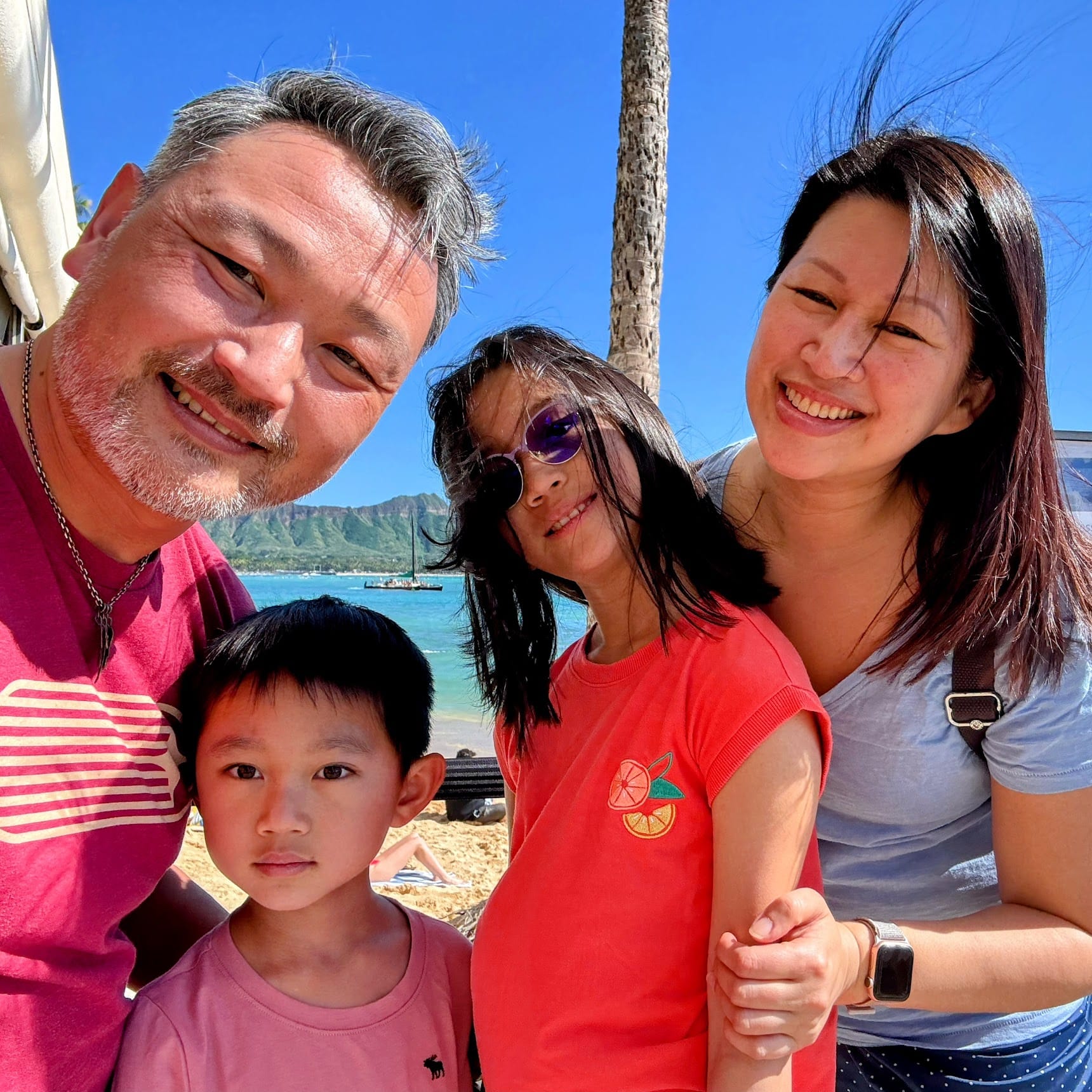
This is the story of my life. I composed it with the support of my wife, kids, and great friends like Omar. Starting my business played a big part in maximizing the time with my family and gaining unique experiences.
Each time I started a new project, including two of my companies, I had the attitude of "There goes nothing." I always expected most attempts to fail, and it might hurt my feelings.
And they did: I could probably start a blog just about my failures. And I am still nobody to almost everyone in the world. But each attempt gave me lessons, sometimes bitter, sometimes sweet, and always making me a little wiser and mature.
Starting with zero expectation doesn’t mean ending with nothing. It means trusting that what you build — one imperfect step at a time — can eventually become everything that matters.
Thank you for reading my story. I feel like I still have nothing to show and tell, but I also know I'm my harshest critic. I hope you found my story interesting, and it would be my greatest pleasure if it expanded young professionals' imagination when they thought about their alternative career paths and untapped opportunities.
👋 I'm Daigo Tanaka. If you liked my story, follow me on LinkedIn to stay connected. You can also subscribe to my "𝐈𝐧𝐭𝐫𝐨𝐬𝐩𝐞𝐜𝐭𝐞𝐝 - 𝐑𝐞𝐟𝐥𝐞𝐜𝐭𝐢𝐨𝐧𝐬 𝐨𝐧 𝐓𝐞𝐜𝐡𝐧𝐨𝐥𝐨𝐠𝐲’𝐬 𝐈𝐦𝐩𝐚𝐜𝐭 𝐨𝐧 𝐃𝐚𝐢𝐥𝐲 𝐋𝐢𝐯𝐞𝐬" newsletter. I will deliver thought-provoking topics to your inbox.